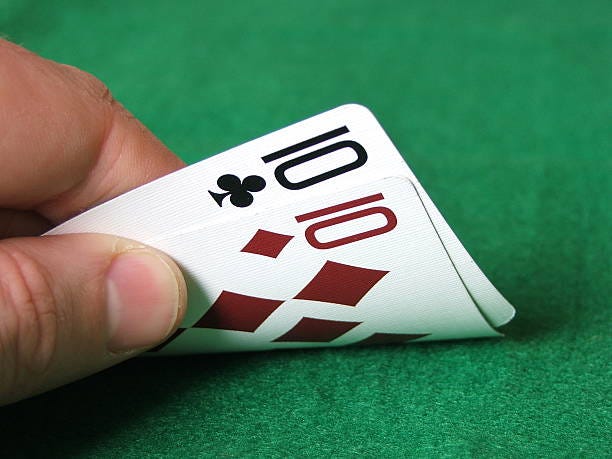SDC Weekly; Watch Games; Anita Porchet; Mo Gawdat #10
Sandro Fratini's Billion Euro Watch collection, Socrates & AI, and an Essay on the Human Condition
Hello again! It’s Wednesday, and I am in Norway. Preparing this edition was tricky, because I tried to get a lot of it done before I left on my travels, and of course, the downside was missing out on last minute bits which would be worth including. Oh well… welcome once again to new subscribers - you can find the previous editions here... for some weird reason, the SDC Weekly section isn’t easily accessible from the Substack app, which is rather silly!
Watch Games
Blinding lights.
Blinking signs.
Screaming with joy.
Crying due to disappointment.
Plenty of free drinks, no idea what the weather is like, and no clue what the time is.
A spin of the wheel, a wave of the hand to signal ‘no more bets’, a throw of the dice, a flip of the cards, and billions changing hands each year.
You win some, you lose some. Mostly, though… the house always wins.
Indeed - Casinos are unlike any other place on earth.
Where do you go first, when you enter a casino? You might love the bustle around a craps table. You might be a calculated person who prefers to test their skill against other players, and so you’re heading to the poker rooms. You are possibly just seeking adrenalin rushes, and so you may wander over to the Blackjack tables or go big at the roulette table. It doesn’t really matter, there will always be a spot for you there if you have an appetite for risk.
Every game does of course have its own rules, and caters to a different type of person:
Poker players are patient and calculated: This is a psychological game, and quite often, the hand you’re dealt will not influence your odds of winning as much as how you play it, will. I used to watch the World Series of Poker quite a lot, and it is fascinating to see how each player has thier own unique style and, more importantly, how they use other players’ knowledge of their own style to influence how they are perceived in a hand.
Roulette players are there for the adrenaline: They know from the start the odds are against them, and they simply do not care. The longer they play, the more certain they are to go bankrupt - but on the odd occasion they do hit it big, that rush is possibly better than doing Class A drugs - I have never played roulette - I guess that says a lot about me too.
Blackjack players are creatures of habit, and very systematic: They have a set amount of cash, and most of the seasoned ones have a set system which pre-determines when to stay, hit, or split. They know how much they want to bet on each hand, and they know how to maximise the amount of time they get to enjoy themselves at the table. They also know when they’re on a streak, and when they should be walking out of the exit.
Now what am I going on about, you might be wondering? This isn’t a lesson about casino games, but there is one thing these games all have in common - the players bet with chips, and most of them use the same decks of playing cards.
Now consider this thought experiment: You are playing Texas Holdem (poker), and get dealt ‘pocket 10’s’ - this is a strong hand, so you stay in the game, and choose to see the flop (the next 3 cards dealt on the table, which will be used to make your hand of 5 cards). The cards you see on the table are a 2 of diamonds, a 10 of hearts, and a King of spades. This means you have now got three-of-a-kind 10’s, and assuming someone else didn’t have pocket kings, you have a high chance of winning this hand - so… you double down on the next round of betting.
Ok, so while that is happening, some other gambler is watching you play - and they think you’re playing Blackjack (Sum to 21) not Poker - they see you have two 10’s making 20, and you’ve decided to double up? Are you drunk or stupid, they wonder? Normally, when you have a hand of 20 at the blackjack table, you simply stay, or split.
The point being… same cards, same chips… but to one person their actions make perfect sense, and to another person the same actions are completely insane.
Appreciate this is perhaps a pointless experiment - all the tables are clearly marked, and everyone sitting at the Blackjack or Poker tables knows exactly what is being played and how to play.
What do you think would happen if it was not so simple to differentiate between the various games on offer? What would happen if there was no separate and clearly marked tables or rooms for each game… i.e., everyone played whatever game they wanted to, on the same tables as other people doing that, at the same time? This would be complete carnage, right?
Now step out of the casino and consider what happens in other parts of life when people are playing with the same money, in the same market, with the same products or assets…. does this sound familiar?
This crazy table exists. We all sit around it, and call it the watch market.
Think about it: everyone is buying and selling the same watches through the same networks of dealers and collectors, at the same time. The difference isn't what, but why they are buying and selling. This why tells us what games are being played by whom.
Thousands of watches are traded every week, but no two parties buy or sell for the exact same reason. The new watch dealer who has a large following on Instagram but no real experience running a business might be buying at a price slightly above all the other dealers, because they’re trying to make a tiny profit which they can afford to do because they have no overheads and do not pay VAT. He is looking for a quick buck. The large dealer with many staff and a physical office, has been around for 20 years and plans to be around for 20 more - they run a tight ship, and charge a premium for their reputation and reliability.
The collector looking to buy a cheaper example might only be in the market to try the watch, and do not plan to hold it for too long. Another collector who is seeking a birth year watch for their child is prepared to pay 30% more, to get a perfect example which they expect to stay in the family for generations to come. Nobody knows what another’s exact motivations or intentions are, but they all sit at the same table.
A new Rolex is always going to be a new Rolex - the retail price is listed online. The market price, however, is a function of supply and demand - this supply and demand will vary based on the game being played by every person at the table, and the net effect of their collective bids and asks.
A watch dealer with a business he plans to run for another 40 years, sees the recent decline as an investment opportunity, and then 30-something year old collector who is trying to sell his watches to fund a new house deposit, sees this market as a complete disaster.
A 25-year-old with a 40-year time horizon sees the current market decline as an investment opportunity, but the 70-year-old retiree sees it as a retirement killer. Again, your investment decisions are driven by the game that you are playing.
As Morgan Housel said:
Same cards. Same chips. Same table. Same market. Same watches. Different games. Different intentions. Different outcomes.
Links of interest
😇 Anita Porchet was only 12, when her godfather (himself an engraver-enameller) introduced her to this age-old art of enameling. I was curious to learn more about Anita, who is now one of the world’s most recognised and respected enamelers. I didn’t think I had learned enough about her work to meaningfully comment on it, but my experience in finding out more about her was enjoyable enough to share a few links which might give you a better appreciation for this wonderful artist:
Anita Porchet, world class enameler discusses her art - (1hr Podcast at Collectability)
The multiple talents of enamellist Anita Porchet (europastar.com)
Meet the world’s greatest watch painter | Financial Times (ft.com)
Discover Anita Porchet, artisan Enameller in Corcelles-le-Jorat - Homo Faber Guide
C by Romain Gauthier x Anita Porchet | Romain Gauthier
Up close with the Vacheron Constantin Métiers d’Art Florilège - (watchesbysjx.com)
🤩 In this pensive essay, by Mo Gawdat1, he explains why “We are everywhere, part of everyone”. Have your tissues ready before reading this.
📹 I don’t usually watch the Urban Gentry Channel, but this interview with Sandro Fratini is worth watching. Sandro talks about his 2000 piece watch collection valued at over 1 billion euros, and they tour his ‘watch themed hotels’ too! (18 mins on YouTube)
🤔 What Socrates Can Teach Us About AI
🧬 We don’t know what ⅕ of our genes actually do.
🌪️ Global natural disasters cost insurers $50bn in the first half of 2023, which might explain why insurance premiums are going haywire.
End note
If you don’t know much about Substack, this video is worth watching:
Substack is a platform where readers fund content creators directly. The company sees its approach as a potential game-changer for media business models, and this video highlights some of the challenges which come with such lofty ambitions.
I’m sharing this partly because I applaud what they’re doing, and also because it might inspire someone else to start writing too. I never expected to see the support I now see with this platform, and you too, might be pleasantly surprised.
Until next time!
F
Bonus link: Gardens: An Essay on the Human Condition
It is no coincidence that the bible story begins in The Garden of Eden. Gardens are a metaphor for life. They balance order and chaos, life and death, nature and nurture.
Mo Gawdat is the former Chief Business Officer of Google [X]; host of the popular podcast, Slo Mo: A Podcast with Mo Gawdat; author of the international bestselling books Solve for Happy; Scary Smart; and That Little Voice in Your Head; founder of One Billion Happy; and Chief AI Officer of Flight Story.






Gawdat thoughts! 🙇🏼🙏🏼😑
(Another fine issue, I’m catch up)